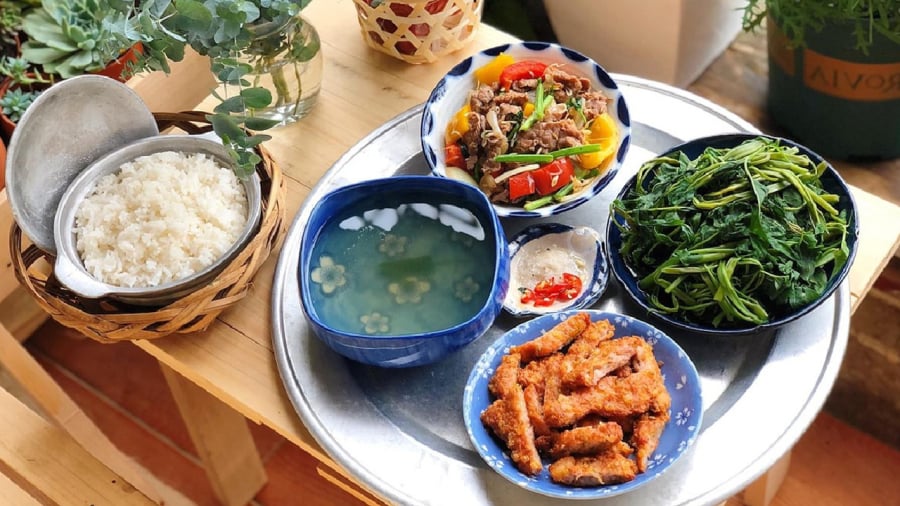A well-balanced and nutritious meal should include essential food groups: carbohydrates (from rice, noodles, bread, and pasta), fats (from animal fats and vegetable oils), proteins (from eggs, meat, and fish), and vitamins and minerals (from fruits and vegetables).
The order in which we consume these foods during a meal has been a subject of debate, with some suggesting that protein-rich foods like meat and fish should be eaten first, while others advocate for eating vegetables first to prevent weight gain.
Should I Eat Rice, Vegetables, or Meat First?
According to PGS TS BS. Lâm Vĩnh Niên, Head of the Department of Nutrition and Dietetics at Ho Chi Minh City University of Medicine and Pharmacy, the order in which we eat different dishes does not significantly affect the body’s ability to absorb nutrients. A typical meal lasts for about 15-20 minutes, during which all the food we consume is mixed with digestive juices in the stomach. Therefore, whether we eat rice, vegetables, or meat first has little impact on nutrient absorption and is mostly a matter of personal preference and habit.
Some people prefer to savor each dish individually to appreciate their unique flavors, while others enjoy mixing everything together. There is no right or wrong here; it all boils down to individual preference and habit.
However, TS. BS Nguyễn Trọng Hưng from the National Institute of Nutrition suggests that apart from personal preference, the order of eating can be determined by an individual’s health condition and specific needs. For example, diabetics may benefit from eating vegetables first, followed by rice and protein-rich foods, while laborers may need to consume calorie-dense foods like rice or starchy dishes first to replenish energy expended during physical work.
If weight management is a concern, it is advisable to eat vegetables and broth-based soups first before moving on to rice and protein-rich dishes. Many people tend to fill up on rice or meat and then skip the vegetables, depriving their bodies of essential fiber, vitamins, and minerals.

Mealtime Tips
Regardless of your meal preferences, it is important not to overeat, as this can lead to excessive energy intake and put a strain on your stomach. Chew slowly and thoroughly, and avoid eating too quickly, as this can lead to consuming more food than your body needs, contributing to weight gain. Keep mealtimes concise, ideally within 15-20 minutes.
After eating, allow some rest for digestion instead of immediately engaging in strenuous activity or sleeping. Ensure your meals are diverse and include a balance of food groups. Limit your intake of sugary foods, oily dishes, and calorie-dense items, as these can contribute to weight gain. Additionally, excessive salt intake is linked to an increased risk of cardiovascular disease, so practice moderation.






































